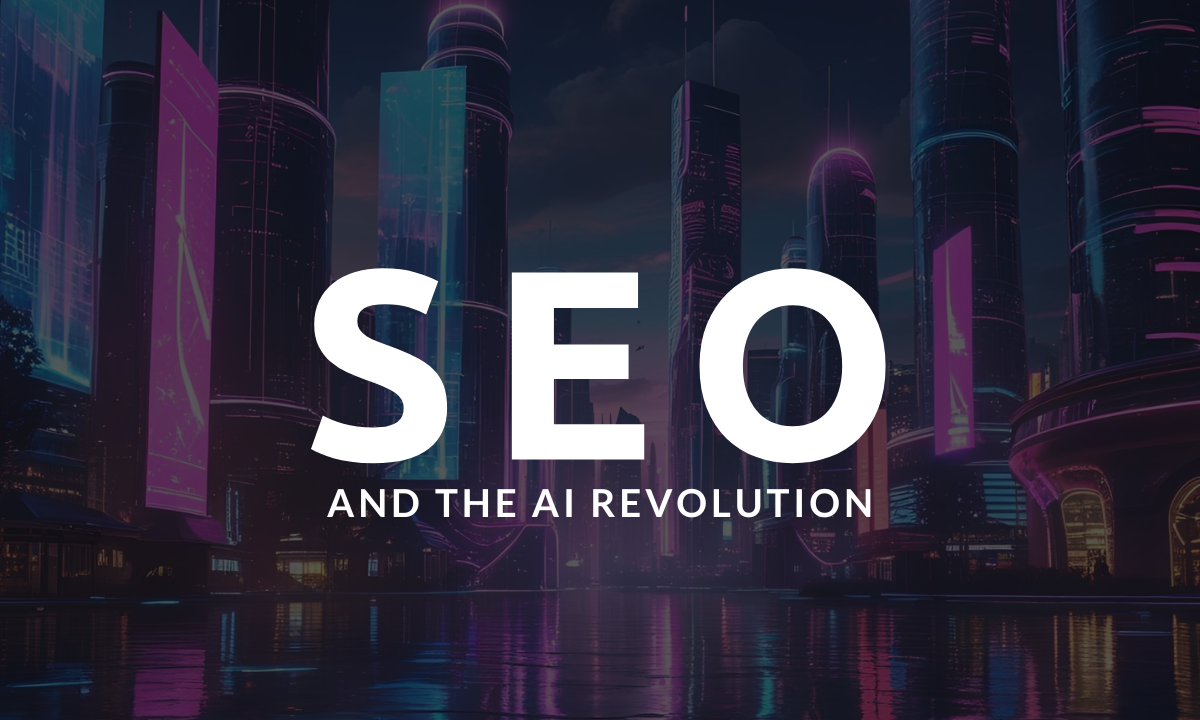The Unfolding Revolution: SEO in the Age of AI
The landscape of Search Engine Optimization is not merely evolving; it’s experiencing a profound and irreversible transformation at the hands of artificial intelligence. Far from being a futuristic concept, AI is already deeply integrated into search algorithms and tools, fundamentally altering how we approach visibility, content, and user engagement. This isn’t just about incremental changes; it’s a complete redefinition of what it means to “rank,” and the next five years will solidify this new paradigm.
Historically, SEO focused heavily on keywords, backlinks, and technical optimizations that, while crucial, often operated within a more predictable, rules-based system. AI has totally changed that predictability. Google’s advancements, such as RankBrain, BERT, and most notably, the Multitask Unified Model (MUM) as well as the ongoing rollout of Search Generative Experience (SGE), illustrate a shift towards understanding intent and context over mere keyword matching. MUM, for instance, can process information across various formats (text, images, video) and languages, aiming to answer complex queries by synthesizing information, not just presenting links. This means a user might find their answer directly in an AI Overview without ever clicking through to a website, a phenomenon leading to an increase in “zero-click searches.” This necessitates a fundamental shift in how we measure success and it also begs the question: Does SEO matter in a world where searchers are able to have their questions answered without ever needing to click on a search result?
This implies something significant. SEO is moving beyond solely chasing traffic to optimizing for exposure and authority. Brands and businesses must now ask: Is my content being cited in AI summaries? Is my brand showing up in the moments that matter, even if a direct click doesn’t occur? This necessitates a shift in success metrics, focusing on broader brand visibility and information retrieval by AI, not just direct website visits.
The role of content is perhaps the most impacted. Generative AI tools can now create high-quality, authoritative, and optimized content at scale, from long-form articles to metadata and FAQs. This presents an immense opportunity for efficiency, but also a challenge: how to differentiate human-created content from AI-generated content, and how to ensure the latter meets Google’s stringent quality guidelines. Google has clearly stated that content quality matters more than who (or what) created it, emphasizing the E-E-A-T framework (Experience, Expertise, Authoritativeness, Trustworthiness). Low-quality, automated content designed solely to manipulate rankings is treated as spam, while original content demonstrating E-E-A-T is favored. This means human oversight, unique insights, and factual accuracy remain necessary.
Projections and Predictions for the Next 5 Years:
-
Hyper-Personalization and Conversational Search Dominance: AI’s ability to understand user intent will lead to increasingly personalized search results. Search engines will leverage user history, preferences, and real-time behavior to deliver highly tailored information. Voice search, already influenced by AI and a growing trend, will continue to grow, making conversational keyword optimization critical. Businesses will need to anticipate natural language queries and provide direct, concise answers.
-
Focus on “Answer Engine Optimization” (AEO): As AI Overviews and similar features become more prevalent, the goal will shift from solely ranking for keywords to optimizing for inclusion in these AI-generated answers. This will demand even greater emphasis on clear, structured content that directly answers questions, often in a Q&A format. Semantic relevance and topical authority, already crucial, will gain even more weight.
-
The Rise of Multimodal SEO: With MUM’s cross-modal understanding, optimizing for images, videos, and even audio content will become as important as text. Descriptive alt text, video transcripts, and well-structured data for all media types will be essential for AI to comprehend and present content effectively.
-
AI as an SEO Co-Pilot, Not a Replacement: While AI tools will continue to automate laborious tasks like keyword research, technical audits, and content generation, the human element will remain indispensable. SEO professionals will transition from execution to strategy, focusing on complex problem-solving, ethical AI implementation, and ensuring content truly resonates with human users. The ability to inject unique experience and brand voice will be a key differentiator. Tools like Flowster can already automate a significant portion of routine SEO tasks, freeing up human strategists.
-
Enhanced Importance of Data Quality and Ethical AI: The quality of AI output is directly tied to the quality of its input data. Therefore, maintaining clean, accurate, and comprehensive data about your brand and offerings will be crucial for effective AI-driven SEO. Ethical considerations, such as preventing bias and ensuring transparency in AI-generated content, will become increasingly regulated and important for maintaining trust with both users and search engines.
In conclusion, SEO in the age of AI is a dynamic and exciting frontier. The next five years will see a further blurring of lines between traditional SEO and broader digital strategy, with AI acting as the powerful engine driving more intelligent, personalized, and intent-driven search experiences. Adaptability, a focus on true user value, and a commitment to high-quality, authoritative content will be the cornerstones of success in this evolving digital ecosystem. As Semrush highlights in their ongoing research into AI’s impact on search, the key to winning will be understanding and adapting to these algorithmic shifts.
